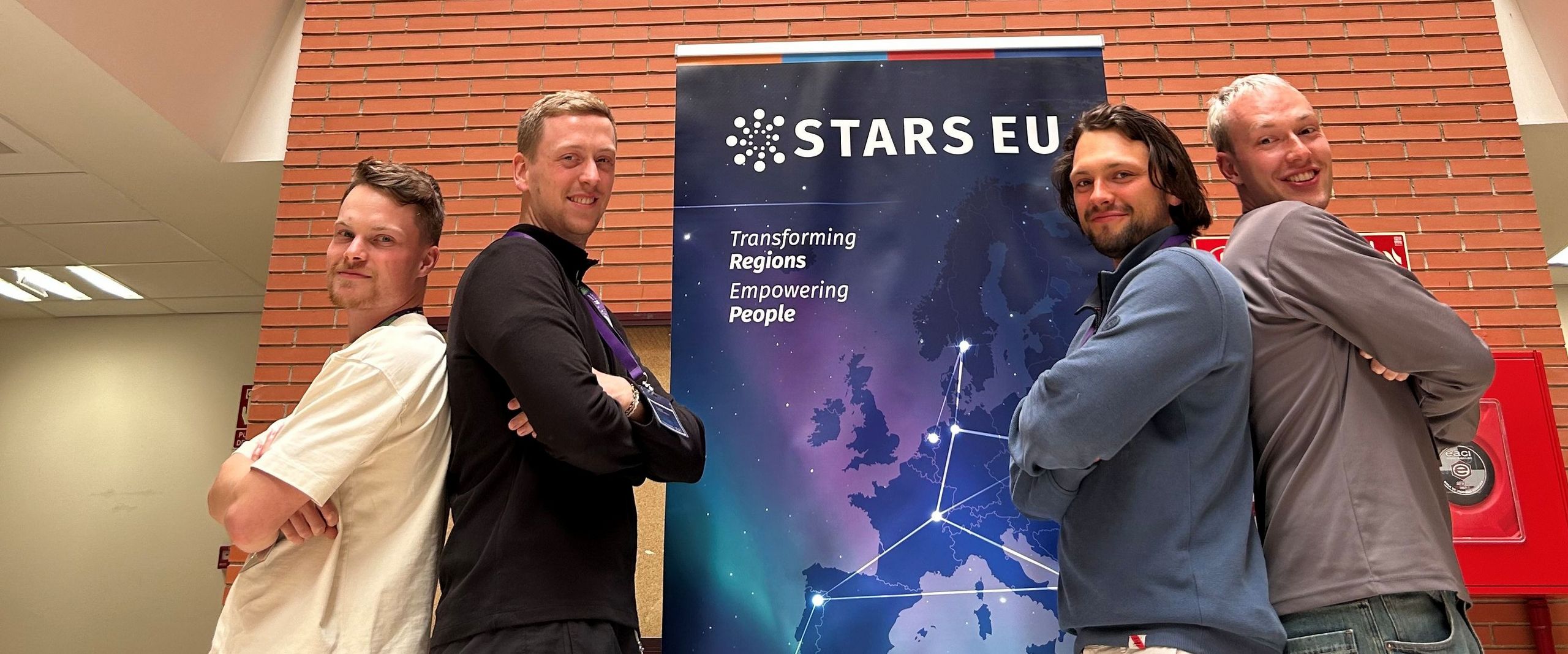
Intelligent electricity grids enable the efficient integration of renewable energies into energy distribution. They utilise information and communication technologies to intelligently control electricity generation, distribution and use. Students at Hochschule Bremen - City University of Applied Sciences (HSB) have been working on smart grids as part of a study programme offered by the international university alliance STARS EU. The final event took place at the partner university Universidad de La Laguna on Tenerife.
As part of the Blended Intensive Programme (BIP), individual partner universities from the STARS EU Thematic Interest Group Energy (TIG Energy) offered a total of 14 online courses. One of these was a course by Prof Dr Ingo Haug from HSB on the topic of blockchains in the context of smart grids. ‘Blockchains are decentralised, digital data records that record transactions in blocks and link them together cryptographically, making them unchangeable and transparent,’ explains the scientist. ‘This technology can be used in smart grids, for example, to enable electricity trading between small-scale producers and consumers.’ The event was concluded during an attendance week at the end of May at the Universidad de La Laguna on Tenerife.
Five students from Hochschule Bremen from the Master's programme in Energy Technology took part in the event: Wieland Borchardt, Marek Dworak, Maik Hengst, Jonas Kanis and Lukas Sauer. ‘We found this extracurricular format and meeting students and lecturers from other European countries to be an enhancement to our degree programme,’ says Maik Hengst.
The exchange was supported by the head of the Master's degree programme in Energy Technology, Prof. Dr. Christian Mehler, the decentralised and central International Office of the HSB and the international representative Prof. Dr. Lars-Uve Schrader of Faculty 5 - Nature and Technology. The BIP was organised by Prof. Dr. Benjamín González Díaz of the Universidad de La Laguna.
The participating universities in STARS EU were Cracow University of Technology (Poland), Polytechnic Institute of Bragance (Portugal), Universidad de La Laguna (Spain/Tenerife) and Hochschule Bremen - City University of Applied Sciences. Kempten University of Applied Sciences and the University of Žilina (Slovakia) also co-operated in the project.